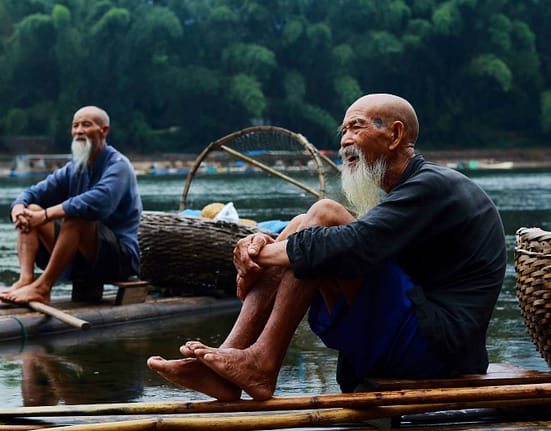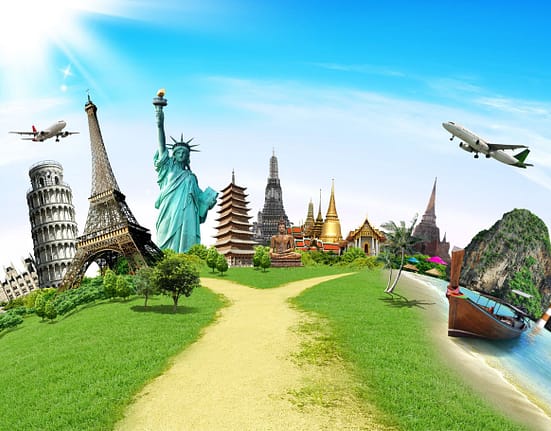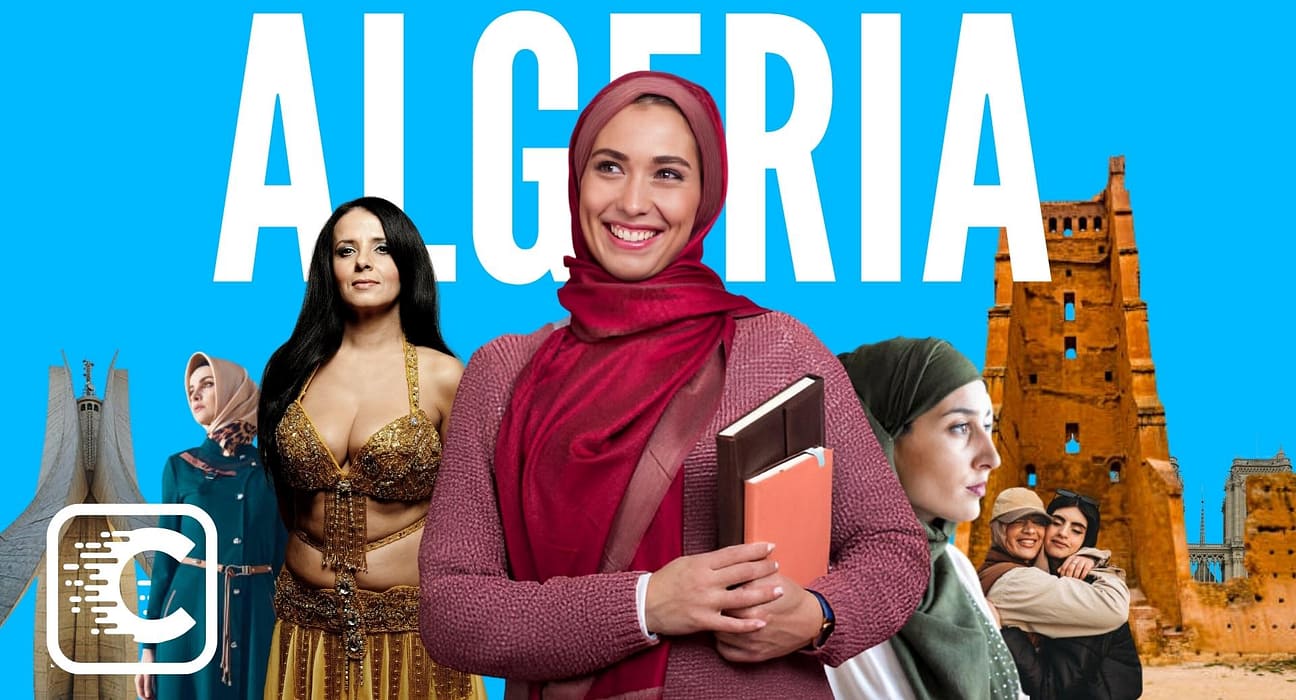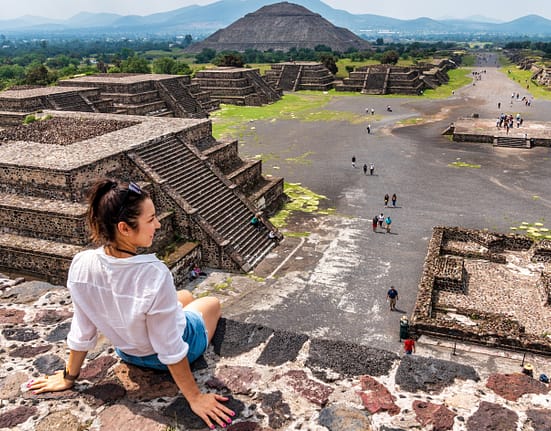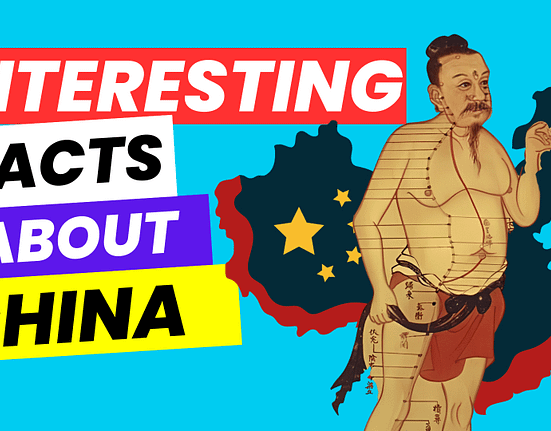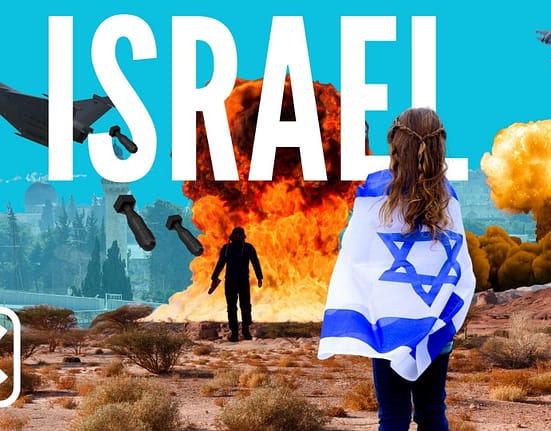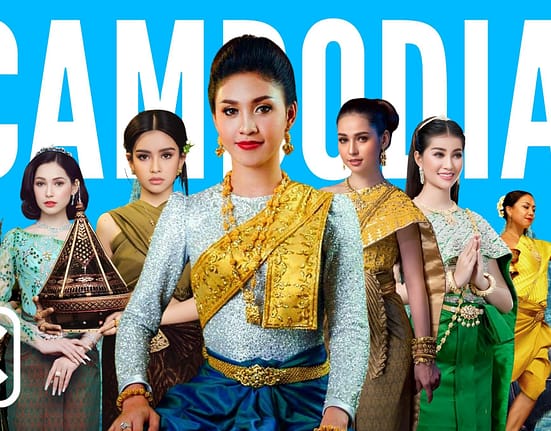Last updated on December 14th, 2023 at 05:17 pm
Did you know that Algeria hides a world of wonders behind its borders, waiting to be discovered? Step into a journey of 27 fascinating facts about Algeria that will surely spark your curiosity.
Algeria : An introduction
Algeria is a North African country boasting stunning natural landscapes, fascinating history, and countless attractions that are indeed a source of pride. From grand desert lands and towering mountains to historic cities, vast green marshes, and vibrant culture, this mesmerizing country will surely delight any traveler.
Whether you’re seeking thrilling adventures or peaceful downtime or an opportunity to uncover Algeria’s noteworthy past, there’s a suitable destination for visitors of all types in Algeria.
Situated at the heart of the Maghreb, Algeria is a country that offers unforgettable experiences and is perfectly suited for all who seek something new to visit.
While it’s indeed a great travel center with a large number of UNESCO World Heritage sites, the beauty of Algeria cannot be confined to these monuments alone.
From wonders in nature to its unique culture, there are plenty of interesting things to explore in this North African country.
Algeria is one of the most friendly and attractive countries in North Africa. From the vast wild Sahara to incredibly beautiful coastal regions; and from distinctive sets of traditions and cultures in Algeria, which is an epicenter of a series on Northern African history that deep dives into centuries-old beginnings till its days as an imperial power up until modern times, it’s a nation filled with captivating stories that never fail to mesmerize.
27 Interesting Facts about Algeria
Here are the 27 Interesting Algeria Facts.
1. Algeria is the Largest Country in Africa.
Covering an area of 2,381,741 square kilometers, Algeria is the largest country in Africa and the tenth largest country in the world. Algerians delight in their rich ancient history and civilization, which interweaves deeply with their diverse geography. Stretching from prosperous coastlines to sweeping desert lands; there’s something for everyone in Algeria. This awe-inspiring North African territory is vast beyond denial yet most importantly, it serves as a residence to millions of happy and contented inhabitants.
2. Algeria Won Independence from France.
The brutal conflict that spilled 132 years of bloodshed in Algeria, following the war for independence from France, marked a pivotal moment in the country’s history. On July 5, 1962, Algeria gained its independence and put an end to European colonial rule since the beginning of the 19th century.
The revolution from 1954 to 1962 brought significant socio-political changes to Algeria. Despite interethnic and interreligious tensions, it helped shape the nation into a large democratic society that exists today.
Algeria’s struggle for independence inspired other African nations to seek their own liberation from colonial powers. Thus, this event played a crucial role in the broader fight for freedom across Africa.
3. Algeria is a Democratic Republic.
Algeria, officially known as the People’s Democratic Republic of Algeria, is a semi-presidential republic located in North Africa. After gaining democratic national liberation from French colonial rule in 1962, the country has been governed by a presidential system with pride. Currently, under the adopted constitution in 1963, the current algerian government consists of an elected president and two chambers of parliament along with regional governments.
Algeria strives to create social justice through education and training programs and works towards developing human resources while promoting economic growth and safeguarding human rights. It stands committed to its own sovereignty while serving as a model for other nations aspiring to shape their own democracy.
Algeria holds a significant place in upholding self-determination while contributing to a maternal model for other countries that seek to establish their independence. This commitment is deeply rooted in preserving democracy and upholding the responsibility of self-determination.
4. Large Islamic Country
Algeria is a captivating African nation that encompasses vastness, cultural richness, and the deep-rooted values of Islam. In the 7th century, Islam was brought to this region by the Berbers during their conquests, after which it permeated all aspects of life. From politics to art and from magnificent mosques to commemorative structures, Islam’s presence in this region is truly evident.
According to the Ministry of Religious Affairs in 2006, there are approximately 15,000 mosques in Algeria. By exploring Islamic practices, beliefs, and traditions in depth, one can truly appreciate the Algerian culture.
5. Algeria has a Unique Flag
Algeria is symbolized by a culturally significant flag that represents its heritage and proud history. The two colors, green and white, symbolize the bloodshed of martyrs in the struggle for independence as well as the peacefulness derived from colonial liberation.
Additionally, Islam, a prominent faith in Algeria, is represented by the crescent moon and star, showcasing its significance. The central hand signifies Algerian brotherhood.
6. Algerians Speak a Variety of Languages
While Algerian Arabic (called darja) is the official language of Algeria , many people also speak other languages. Berber, Kabyle, and Tamazight are among the most widely spoken languages. Due to France’s previous colonial rule, French is also extensively spoken in Algeria.
This rich linguistic diversity contributes to the cultural fabric of Algerian society and helps provide a unique identity that sets it apart.
7. Algerians have won Five Gold Medals at Olympics
Algeria has achieved an incredible feat in the Olympics, winning a total of five gold medals, which is an astonishing accomplishment. From Hocine Soltani’s historic victory in 1992 to Taoufik Makhloufi’s triumph in 2012, Algerian athletes have consistently excelled in their noteworthy achievements.
These exceptional athletes not only inspire young competitors in their respective fields but also instill a sense of national pride and serve as shining examples of unwavering determination that embodies the indomitable spirit of Algeria.
8. The City of Algiers is the Capital of Algeria
Located in the Mediterranean Sea, Algiers, the magnificent capital of Algeria, was established by the notable Berber Zirid dynasty’s Bologhine ibn Ziri in 944. Now it is a bustling port city with over three million residents.
Algiers is not only the political and economic hub of Algeria but also an international tourism center. Showcasing a variety of architectural gems including mosques, museums, and theaters, Algiers radiates cultural brilliance and attractive history. It is indeed a noteworthy place that attracts leisure travelers from around the world.
9. The Sahara Desert is located in Algeria
80% of Algeria’s land area is comprised of the Sahara Desert. This expansive desert, extending up to 3.6 million square miles, is currently the largest hot desert in the world.
Due to its hot and arid climate, it significantly influences the lives of millions of inhabitants in nearby regions. The local wildlife has adapted to these harsh conditions, but human intervention continues to put them under severe stress.
Excessive use of groundwater, overgrazing, and agricultural shifts have accelerated the desertification process in Sahara, providing evidence of mismanagement. Global warming also plays a major role in exacerbating temperature levels here.
10. Algerian Abroad Life
Algeria, a vibrant country in North Africa where 44 million people reside, is home to 91% of its population. It ranks ninth on the list of African countries with the highest populations. Moreover, the average age of the population is just 28.5 years.
Despite this, over two million Algerian population lives abroad, with the majority residing in France. However, there are also Algerians living in Canada, Spain, Italy, Germany, and the United Kingdom.
Although many Algerians choose to abandon their homes for a life abroad, there are still plenty of opportunities to earn money in Algeria itself, particularly in sectors like oil and gas extraction, construction, hospitality industry and agriculture.
The literacy rate in Algeria stands at 87.42%. Numerous prestigious institutions in Algeria offer higher education programs..
11. Home to the Largest Mosque in Africa.
Djamaa el Djazaïr, the captivating landmark of Algeria, never fails to awe any visitor. Spanning over an area of 67,000 square meters, it is not only the largest mosque in Africa but also one of the largest mosques in the world. It can accommodate up to 120,000 people at once. The towering 200-meter minaret dominates the Algiers skyline.
This magnificent structure was built by President Houari Boumediene in 1982 and stands proudly in its lush surroundings. Adorned with marble panels and mosaic tiles, it showcases exquisite Islamic calligraphy and geometric designs. Not only does it exhibit stunning beauty, but it also represents the rich Islamic heritage of the region, making it a must-visit for curious travelers who wish to immerse themselves in its splendor..
12. Algerian Borders.
Algeria, spanning 2,381,741 square kilometers, holds the distinction of being the tenth largest country in the world. It is bordered by Tunisia to its north and Libya to its east. To the south, it shares borders with Niger, Mali, and Mauritania, while Morocco lies to its west.
Despite occasional conflicts and territorial disputes between nations, Algeria’s borders remain intact. However, there is an ongoing disagreement between Algeria and Morocco regarding the status of Western Sahara..
13. Home to a UNESCO World Heritage Site.
Algeria is a country with many natural wonders that deserve to be preserved. Seven of these sites have achieved UNESCO World Heritage status. They are Djemila, Tipasa, Al Qala of Beni Hammed, Kasbah of Algiers, Massab Valley, Tassili en Ajar and Tingad. A visit to these sites is a must when exploring Algeria’s remarkable history.
14. Home to a Variety of Ancient Archaeological Sites.
Algeria is an incredible country, especially when it comes to archaeology. Madghasen, Khabar-er-Rumiya and The Jedars are among the most notable and well-known sites. However, there are still many other sites that provide archaeological insights into Algeria’s history. For example, Lambessa, Tebessa, Tipasa and Timgad are all popular destinations for travelers who want to explore the history and culture of the country in more detail.
15. Home to Two Nobel Prize Winners
Two Nobel laureates in literature and physics are from Algeria. The first of these, Albert Camus, was awarded the Nobel Prize for Literature in 1957. Born and raised in Algeria, Camus was a famous novelist, philosopher and journalist. In his literature, Camus tried to express the absurdities of life through a combination of existential philosophy and French realism.
The second Nobel laureate from Algeria is Claude Cohen-Tannaudji, who won the Nobel Prize in Physics in 1997. Cohen-Tannoudji, an Algerian-born physicist, was noted for his discoveries and experiments related to laser spectroscopy.
16. Algerians Live in a Variety of Different Landscapes
From the vast Saharan sands in the south to the lush Mediterranean shores in the north, Algeria is a beautiful country with lots of exciting things to do and enjoy, such as exploring the spectacular views of the Ouarres and Sabar Mountains, learning about traditional crafts such as pottery and basket weaving.
Here, small farms play an important role in the local economy. Also, the magnificent Roman city ruins will take you back in time.
17. Home to a Variety of Natural Resources.
Algeria is a powerhouse of natural resources, from fossil fuels to minerals and coastal fisheries. Needless to say, its forests provide valuable timber for furniture making and building materials.
Blessed with a Mediterranean coastline, Algeria has untapped potential when it comes to maritime tourism.
Natural gas accounts for more than 40 percent of the country’s energy production, much of which comes from offshore deposits in the Mediterranean Sea. With reserves of 4,504 billion cubic meters as of 2021, Algeria is one of the top 10 natural gas producers in the world.
18. Home to a Variety of Unique Festivals
Algeria is rich with its warm festivals and celebrations. From concerts to mouth-watering food fests, here are six cultural events in Algeria that will appeal to everyone.
Rai Festival:
Rai Festival is one of Algeria’s most popular festivals, bringing together people from all over the country to celebrate Algerian folk music. It is attended by thousands of people every year, including local and international musicians who perform a variety of traditional songs and dances.
Strawberry Festival:
Another annual event worth attending is the Strawberry Festival at Skikda. It is held annually from May 21 to 23 when townspeople gather to celebrate the abundance of strawberries that grow in the area. Visitors can enjoy freshly picked strawberry delights prepared in a variety of delicious ways, as well as strawberry ice cream, strawberry jam and more! There are cooking competitions and events for children.
Carpet Festival:
The exciting Ghardaya Carpet Festival is held every year in the city of Ghardaya, Algeria. At this event, local artisans demonstrate their weaving and dyeing techniques. They create vibrant Berber rugs. Visitors to the festival can watch these art pieces being made and buy them for money. Apart from carpets, traditional teas, spices and foods are also available.
Fisahara Festival:
The Sahara International Film Festival, also known as Fisahara, takes place in the Sahrawi refugee camp near the border of Western Sahara in the southwestern corner of Algeria.
Every year, filmmakers, writers, actors and other artists come together to share their stories and enjoy numerous film screenings, workshops and panels throughout the four-day event.
European Cultural Festival:
The European Cultural Festival is an extraordinary annual event celebrating Algeria’s vibrant culture. The festival showcases a number of performances, exhibitions and workshops featuring local and international artists. Concerts will be held at various venues around the city throughout the festival period, with categories ranging from art and photography; Exhibitions are also part of the celebration, showcasing the works of local and European artists. Theater, dance performances and film screenings provide a more vivid experience of Algerian culture and its many influences.
19. The US Army used to import camels from Algeria.
Once upon a time, in the 1800s, the US Army faced a major problem: how to transport goods and supplies through the hot and difficult deserts of the American Southwest.
One experiment they tried was quite unusual – they used camels! The U.S. Army imported more than 75 camels from Algeria and tasked them with carrying heavy cargo across the desert. They did amazingly well, surviving the extreme heat and proving that camels are amazing animals carrying up to 1000 pounds over 20 miles a day, twice as much as mules! In addition, they need less water than horses and do not need to find other food, simply eating plants found in desert climates.
Unfortunately, the camel experiments ended because the military was not allocated enough money to sustain them. However, these unusual animals remain a part of U.S. military history.
20. The national animal is the Fennec fox
The fennec fox (Vulpus Cerda) is an incredible creature and world’s smallest fox. It is Algeria’s national animal and is found in the Sahara Desert and parts of the Arabian Peninsula. Finding one of these among the dunes is quite a challenge. They are small but mighty:
Weighing only 1 to 2 kg and measuring up to 40 cm in length, they have a thick coat of light yellow or orange color, white or cream underparts, and large ears.
Fennec foxes are nocturnal, so if you want to see them you’ll need to look for them at dawn or dusk. They mainly feed on insects, rodents, birds and eggs. Their ability to survive in inhospitable environments is remarkable. The Algerian people cherish these animals as symbols of their indomitable spirit.
21. The only country to mention two countries in its national anthem
The Algerian national anthem is unique among the world’s national anthems because it is the only national anthem to refer to two countries.
The two countries mentioned in the Algerian national anthem are France and Algeria. After Algeria gained independence from France in 1962, “Kassaman” was adopted as their national anthem.
Celebrating the liberation of Algeria from French rule, the song was written by Moufdi Zakaria and composed by Cha Mohamed Fouzi. The song’s lyrics refer to the struggle for freedom and invoke the spirit of the “heroes of the Maghrib” who fought and died for freedom.
22. Drawings and other Archaeological sites from the Neolithic
Algeria’s Tingad is an archaeological dream from the Neolithic. History says that it was established as a military camp by the ancient Roman emperor Trajan.
Beautifully preserved mosaics, intricate carvings in tombs, intricate villas, and centuries-old drawings on the walls can be seen.
One cannot but marvel at the marvelous system of aqueducts that supplied the city with water.
23. Gained the right to vote in 1962
After a long struggle for independence, Algeria officially declared its sovereignty in 1962. It also marked the dawn of a new era for Algerian citizens: for the first time in their country’s history, all adults received the right to vote.
Algerians were eager to exercise their newly acquired rights, with more than 90 percent of the population voting in the first year.
Since then, citizens have continued to demonstrate their commitment to democracy. The polling process is considered fair and free from fraud, intimidation or manipulation. Algeria has come a long way since the days of colonial rule. ‘Universal suffrage’ is an integral part of its progress towards becoming a modern, democratic nation.
24. Popular Sport in Algeria is Football
Algeria is home to a respected football team, the Algerian National Football Team, which has represented the country in many international tournaments. Founded in 1962, the team competes against the best teams from across Africa. They have won many prestigious titles including being champions of the African Cup of Nations in 1990 and 2019.
25. Saharan cheetah – An Endangered Animal.
Algeria is home to a rare creature – yes, the Saharan cheetah! Sadly, only about 250 Saharan cheetahs are alive today. Most of them are found in Algeria.
Known for their short fur and light color, these carnivores have earned the reputation of being among the rarest. This unique species is now critically endangered.
26. Extremely Low Gas Prices in Algeria.
A famous fact about Algeria is its gas prices. Gas price is $0.36 per gallon. As mentioned earlier, Algeria has a lot of natural gas resources, which is the reason for the low gas prices.
27. Algerian Women Dominate Law and Justice Sector.
In Algeria, women lead the way in law and justice, as 70% of lawyers and 60% of judges are women. It shows tremendous progress for women’s rights and empowerment in the legal field and provides a beacon of hope for future generations of Algerian women. Algerian women’s progress inspires all women around the world to follow their dreams with confidence and conviction.
Conclusion
Algeria’s history is full of incredible achievements and amazing stories that are fascinating and inspiring. From ancient cities, to fascinating cuisine and welcoming people, visitors to Algeria have a lot to explore.
That brings us to the end of our video on Algeria. If you enjoyed it, remember to hit that like button. Stay in touch with our latest updates by subscribing to this channel and clicking the notification bell. Take care and we’ll see you soon with another exciting video.
